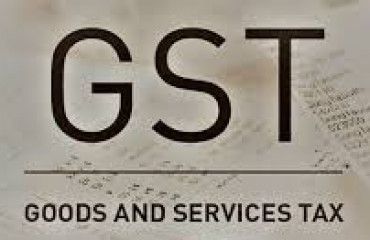
Maruti Suzuki India Ltd chairman R.C. Bhargava on Tuesday said India must aggressively pursue free trade agreements (FTAs) and trim tariffs to help automakers tap large overseas markets. Alongside, the local auto industry must abandon its “protectionist mentality" and embrace competition to thrive, Bhargava said at the company’s annual media meet.
Maruti Suzuki India Ltd chairman R.C. Bhargava on Tuesday said India must aggressively pursue free trade agreements (FTAs) and trim tariffs to help automakers tap large overseas markets. Alongside, the local auto industry must abandon its "protectionist mentality" and embrace competition to thrive, Bhargava said at the company's annual media meet.
India is currently engaged in free trade negotiations with the UK and the European Union, deals that could potentially have a significant impact on the automotive industry.
According to Bhargava, India has the potential to be "far more competitive in manufacturing" than any other country. While there may be concerns around dumping, the country can handle a certain volume of imports, and FTAs would provide major expansion opportunities, Bhargava added.
He argued that India could compete by supplying high-quality vehicles to various parts of the world rather than relying on "dumping" to gain an advantage.
Steep taxes on automobiles—28% plus compensation cess depending on the vehicle segment—are keeping India's car penetration low, Bhargava said.
"Throughout our history, all motor vehicles—whether SUVs (sport-utility vehicles) or MUVs(multi-utility vehicles)—have been in the highest tax bracket. This clarification (recent GST Council clarification) only confirms the government will levy a 22% cess if four conditions are met, which puts us into a 50% kind of tax bracket. You can't grow an automobile industry at a 50% tax rate," Bhargava said, asserting there is no country where the automobile industry has grown with such a tax rate.
"It is the wisdom of the policymakers and the political leadership—they really don't want the car industry to grow fast... they want it to grow, maybe at 4-5%. If the leadership is happy with the 4-5% growth for the industry, who am I to quibble with that?" he said.
"The growth rate of the car industry today in the country compared to the first 10 years of this century has been steadily coming down. From 12%, we have declined to a 3% growth rate over a 12-year period," Bhargava said. "We are adding one point each year to the car penetration. We have 30 cars per 1,000 people. It has been going up in the past five years by one person per year. If you say our target is to get to China's level, which is around 70 per 1,000, it will take us 140 years".
Bhargava said taxes on automobiles in Europe, Japan, and the US is much lower at 10-20%, which makes them more affordable in these countries, even as per capita incomes in those economies are much higher than in India. He also pointed out that in the EU, the tax on cars is not significantly different from the tax on other products.
"I think we need to look at the total benefits to the economy in terms of the generation of revenues through the auto industry. All countries which have grown their manufacturing rapidly and have grown their GDP fast have done it on the back of the automobile industry. Whether it's Japan, South Korea, China, or Germany, the automobile industry has led the way", he said.
"In the current situation, because of the regulatory changes which have happened, the burden on small cars is far higher than on big cars. This is changing the whole market behaviour, and people who are buying small cars are not buying them in the same numbers they used to", he said, adding, "For the healthy growth of the automobile industry, there must be a steady increase in the number of new customers in the car market. The base of ownership of cars must keep increasing every year; only then will the pyramid become a large pyramid. In a way, it needs to balance itself. If the base keeps becoming narrower, I don't see it becoming an inverted pyramid and an industry where there is hardly any growth in the lower segments. The regulatory effects on the cars have to be kept in mind. This becomes an argument for not having a uniform rate of tax for all cars."
Maruti Suzuki's Auto Expo line-up
Maruti Suzuki will launch two new SUVs for the Indian market at the Auto Expo, set to be held between January 13 and 18 in Greater Noida. The carmaker will also unveil an electric concept SUV, as part of a range of 16 vehicles it will display at the motor show. The range will also include a WagonR Flex Fuel prototype and a customised line-up of existing products like Grand Vitara, XL6, Ciaz, Ertiga, Brezza, Baleno, and Swift among others. While one of the SUV launches is expected to be the 5-door offroader Jimny which will rival Mahindra & Mahindra's Thar in the Indian market, the second one is likely to be a Baleno crossover which will be sold through Maruti Suzuki's Nexa outlets.
